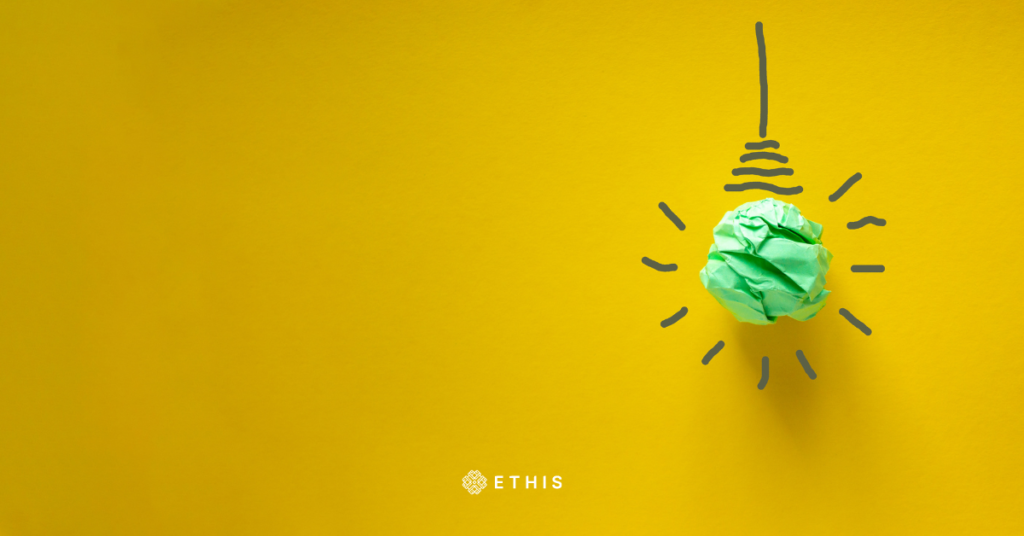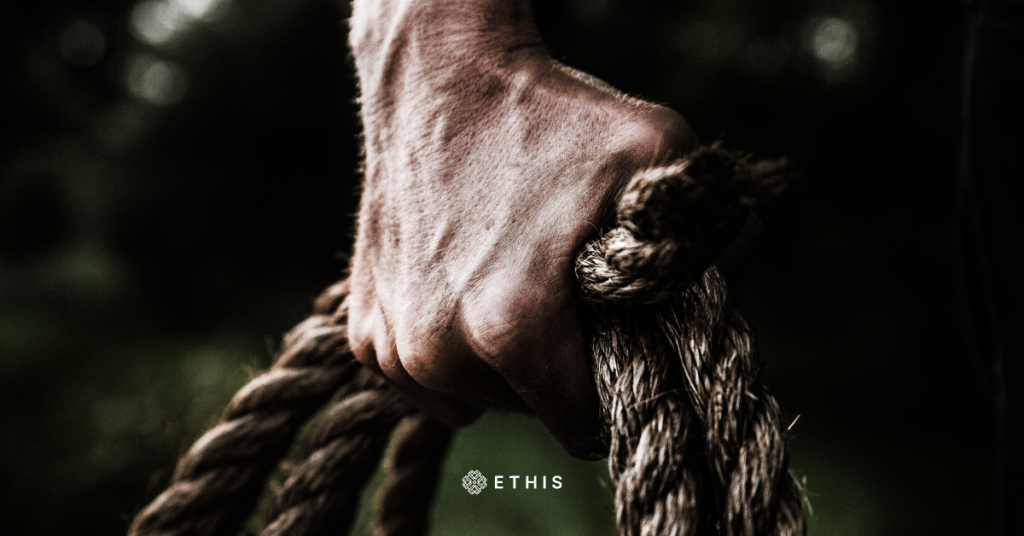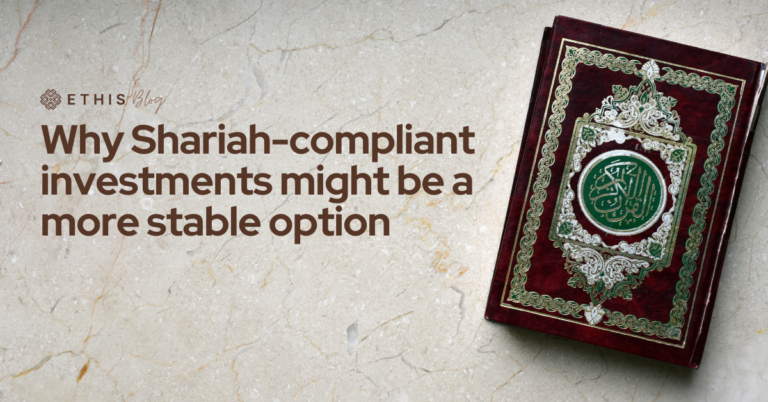
Shariah-compliant investments may provide stability in uncertain times when conventional economic systems begin to fluctuate
The recent Covid-19 outbreak has created uncertainty for businesses that manufacture and source materials. History has shown that the development of a vaccine and a decline in the virus’s spread will mark a turning point in public opinion.
Businesses, particularly those in the consumer, transportation, restaurant, tourism, and retail sectors, will be impacted by the negative attitude in the short run. Investors may be inclined to avoid the markets and cling onto their capital given the current situation. On the other hand, it might not ultimately be the most profitable choice.
In light of these developments, Shariah-compliant investments may provide stability in uncertain times when conventional economic systems begin to fluctuate and volatility becomes a worrying probability in most investors’ minds.
Financial operations that adhere to Islamic Law are referred to as Islamic finance (Shariah). The World Bank has found that Islamic finance, with an emphasis on equity and ethical finance, promotes risk sharing, connects the financial sector with the real economy, and emphasises financial inclusion and shared prosperity given the principles and instruments utilised.
Islamic financial products may provide a way to address present public finance issues while also safeguarding global financial stability, especially in tumultuous times. It’s also worth noting that Islamic finance can be used in any nation or financial market.
Suggested: Sustainable Development of an Islamic Financial System
Mudarabah as an example of a sustainable alternative for shariah compliant investments


Mudarabah, in its truest form, is a heavily trust-based, risk-sharing financing contract based on. Its potential, however, lies in its adaptability to changing demands. A Mudarabah contract is based on a partnership in which one partner handles the investor’s investment in an economic activity while the other partner is the investor.
In contrast to debt, there are no set obligations, and it is possible to prevent the macroeconomic fragility brought on by debt-induced volatility.
The Mudarabah paper is serviced in part depending on ability to pay and in relation to anticipated cash flows. This instrument’s nature and purpose reduce pressure on government resources, allowing them to concentrate on social spending.
For instance, a government might provide in-kind benefits equal to a certain proportion of the project’s worth. A participatory Mudarabah sukuk, which offers no profits while the project is being implemented, could be issued to raise the required investment. In Islamic finance, another popular concept is sukuk, which can be described as a bond-like or certificate of ownership instrument that complies with Shariah and involves a direct ownership interest in assets.
The returns generated by the underlying assets are directly correlated with the returns on the certificates. Bonds, which are indirect interest-bearing debt obligations, are quite different in nature.
Shariah-compliant investments in relation to social responsibility


Socially responsible investing (SRI) and the Islamic finance sector have experienced a renaissance during the past three decades. SRI and Islamic finance play a particularly significant role in the financial system given the two industries’ anticipated development rates.



SRI and Islamic indices are made up of businesses that adhere to a set standard and go through a stock screening process. A company must adhere to environmental, social, and governance (ESG) standards in order to be considered SRI.
The SRI index’s selection criteria often take into account the commercial activities carried out by a corporation that places a high value on ethics and morality, which includes staying away from the cigarette, gaming, and alcohol industries. Businesses must also consider social justice, environmental sustainability, and alternative energy when operating.
Numerous institutions and governments around the world are leading initiatives to move capital markets toward socially responsible investing (SRI), which strategically seeks to consider both financial return and social good. SRI is based on the principles of fairness, equality, and ethics that lead to social well-being.
Given that Islamic finance is derived from fundamental principles of Islamic law and seeks social justice and economic prosperity for society as a whole while promoting sustainable economic activity, such a shift is considered as a logical evolution. Islamic finance has a similar motivation and goal to SRI and has given rise to a new generation of investors where the idea of sustainability is increasingly important in the twenty-first century.
Resilience in troubled times


Assets that adhere to shariah are recognised to be resilient and even have a tendency to outperform more traditional investments during trying times. This was demonstrated in the first half of the year, when global equity shariah funds’ average returns outperformed those of their conventional competitors. More support for this assertion can be found in nations like Malaysia.
In the large-cap, mid-cap, and small-cap categories, Malaysian equities shariah funds delivered average returns of -3.47% and -5.03%, respectively, from January to June 30, according to Morningstar statistics. Comparatively, average returns from Malaysian equities funds in the same categories were -5.58% and -8.3%, respectively. Compared to their conventional equivalents, shariah funds that invest in the larger Asia-Pacific ex-Japan region saw returns of -1.38% during the same time period.
Islamic funds more than hold their own, even if there will always be some performance differences between Sharia-compliant and conventional versions of the same fund because of the Islamic screening procedure and consequent investing universe.
Since the banking and financial industries are more susceptible to market and economic cycles, conventional equity funds with a heavy weighting of stocks in these industries tend to perform well in the early and middle stages of a market upcycle and during periods of strong economic growth, according to Lum Ming Jang, chief investment officer at Public Mutual in Malaysia.
As opposed to conventional equity funds, which typically underperform the broader markets during market downturns due to their investments in traditional banking and financial stocks and companies with high gearing ratios, Islamic equity funds typically outperform conventional equity funds during these times.
They concentrate on industries that are seen as being more defensive and resilient, such as manufacturing, healthcare, and consumer goods, as well as on industries that are growing, like technology and e-commerce.
Islamic equities funds are often focused on businesses with low leverage, sound balance sheets, and comparatively reduced earnings volatility because financial and highly geared businesses are excluded from the Sharia-compliant investing universe.
There is no doubt that the Islamic capital market is gaining popularity around the world as a different way to invest and raise capital as the selection of sharia-compliant goods keeps growing and provides high-quality and financially efficient structures on the global market.
Islamic finance continues to gain acceptability and recognition around the world as important markets, including Malaysia and the Middle East, support growth and promotion initiatives. As a result, new products and creative solutions are always being created.





Top Posts
Islamic P2P Crowdfunding Explained
How to Earn Halal Money? The Money Mindset
Halal Investments for Singapore Muslims? It’s time for a shake-up in the Islamic Investments scene.
Smart investment for making Halal money
3 Reasons Why Property Crowdfunding is the Smart Investment for You